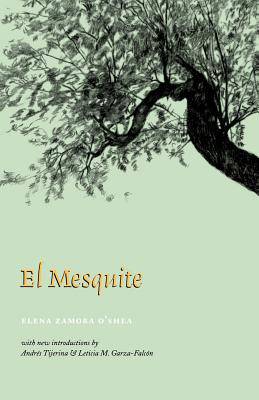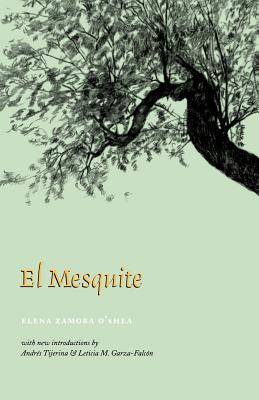
- Retrait gratuit dans votre magasin Club
- 7.000.000 titres dans notre catalogue
- Payer en toute sécurité
- Toujours un magasin près de chez vous
- Retrait gratuit dans votre magasin Club
- 7.000.0000 titres dans notre catalogue
- Payer en toute sécurité
- Toujours un magasin près de chez vous
El Mesquite
A Story of the Early Spanish Settlements Between the Nueces and the Rio Grande
Elena Zamora O'Shea
23,95 €
+ 47 points
Description
The open country of Texas between the Nueces River and the Rio Grande was sparsely settled through the nineteenth century, and most of the settlers who did live there had Hispanic names that until recently were rarely admitted into the pages of Texas history. In 1935, however, a descendant of one of the old Spanish land-grant families in the region--a woman, no less--found an ingenious way to publish the history of her region at a time when neither Tejanos nor women had much voice. She told the story from the perspective of an ancient mesquite tree, under whose branches much South Texas history had passed. Her tale became an invaluable source of folk history but has long been out of print. Now, with important new introductions by Leticia M. Garza-Falcón and Andrés Tijerina, the history witnessed by El Mesquite can again inform readers of the way of life that first shaped Texas. Through the voice of the gnarled old tree, Elena Zamora O'Shea tells South Texas political and ethnographic history, filled with details of daily life such as songs, local plants and folk medicines, foods and recipes, peone/patron relations, and the Tejano ranch vocabulary. The work is an important example of the historical-folkloristic literary genre used by Mexican American writers of the period. Using the literary device of the tree's narration, O'Shea raises issues of culture, discrimination, and prejudice she could not have addressed in her own voice in that day and explicitly states the Mexican American ideology of 1930s Texas. The result is a literary and historic work of lasting value, which clearly articulates the Tejano claim to legitimacy in Texas history.
Spécifications
Parties prenantes
- Auteur(s) :
- Editeur:
Contenu
- Nombre de pages :
- 160
- Langue:
- Anglais
- Collection :
- Tome:
- n° 4
Caractéristiques
- EAN:
- 9781585441082
- Date de parution :
- 01-08-00
- Format:
- Livre broché
- Format numérique:
- Trade paperback (VS)
- Dimensions :
- 141 mm x 191 mm
- Poids :
- 208 g

Les avis
Nous publions uniquement les avis qui respectent les conditions requises. Consultez nos conditions pour les avis.






